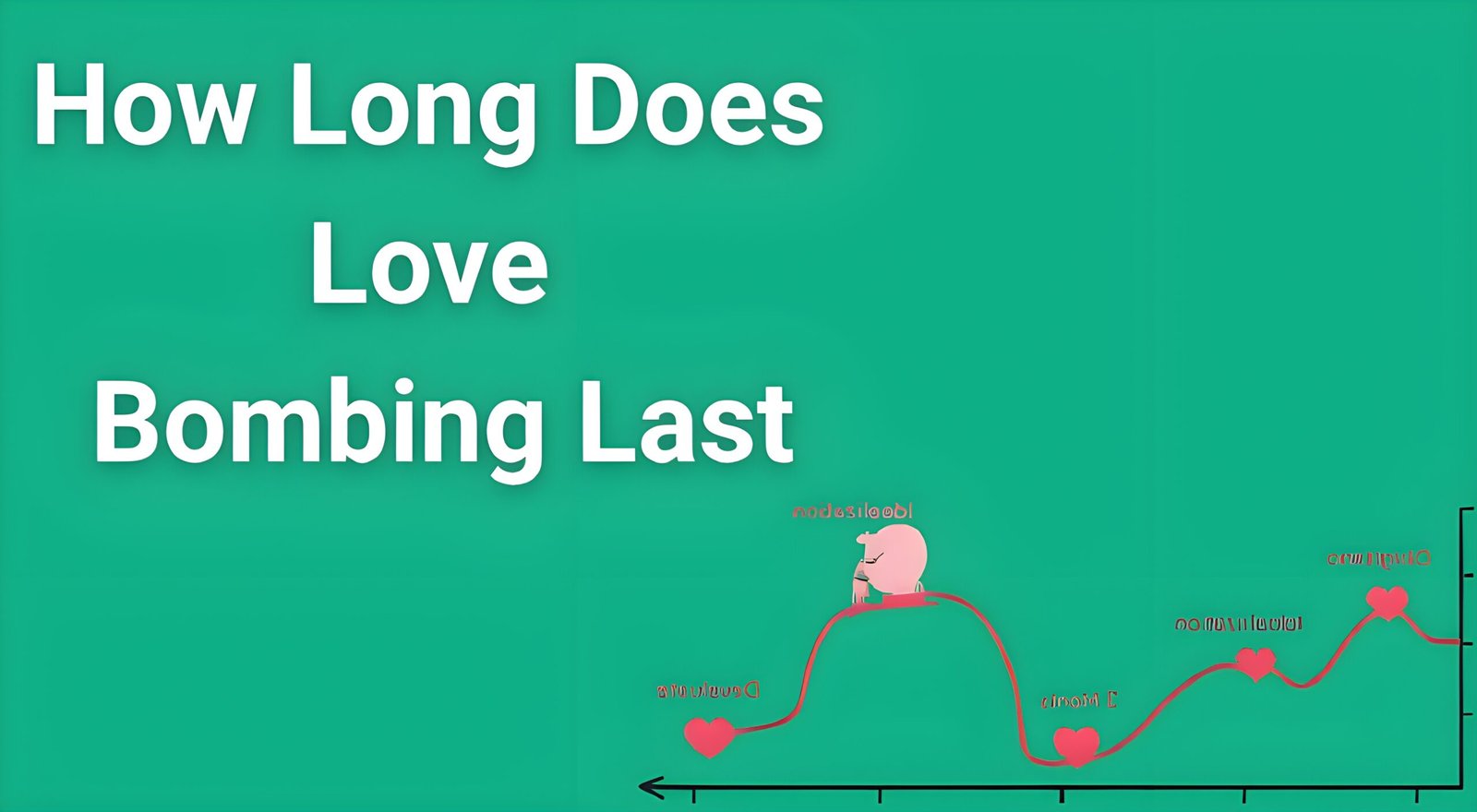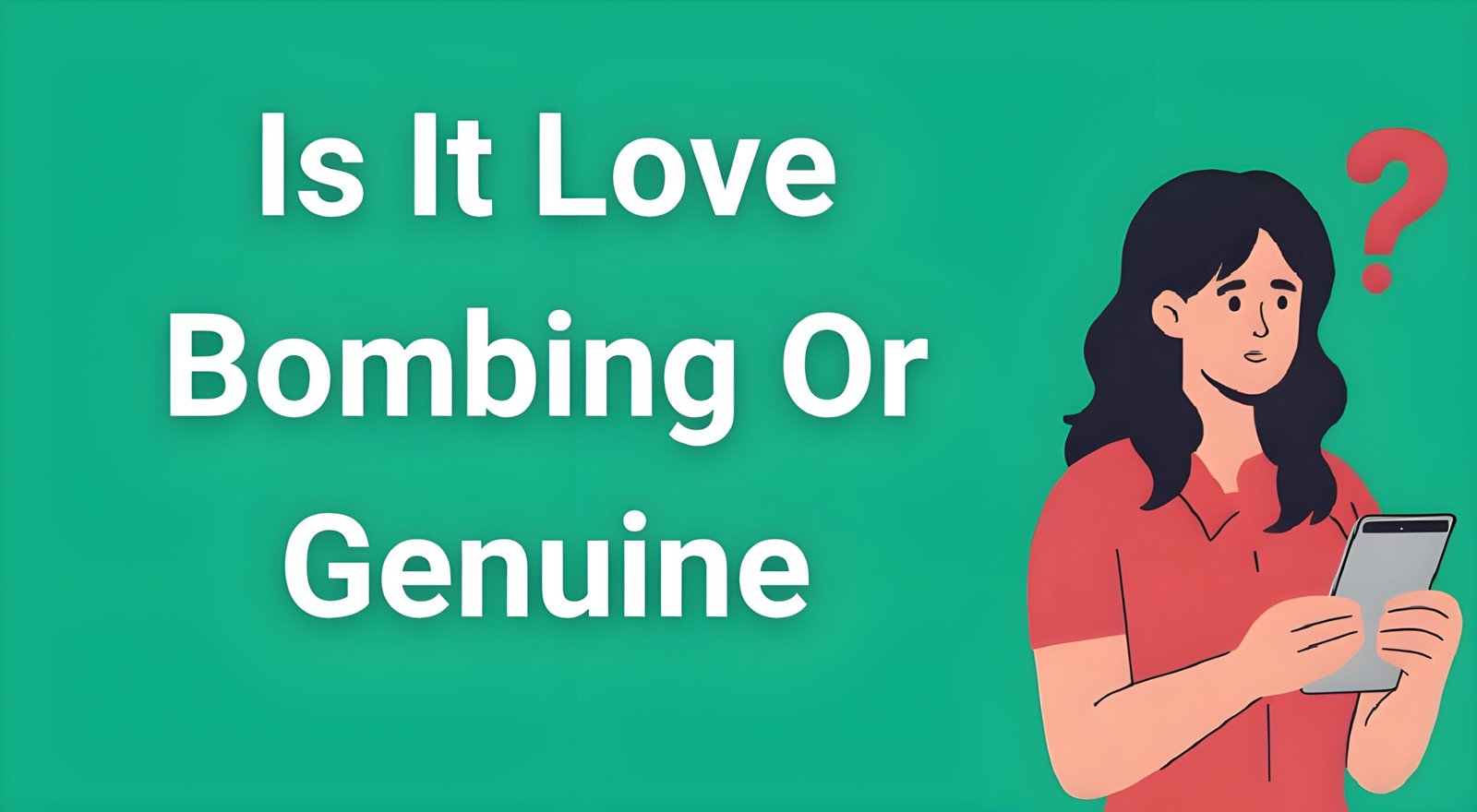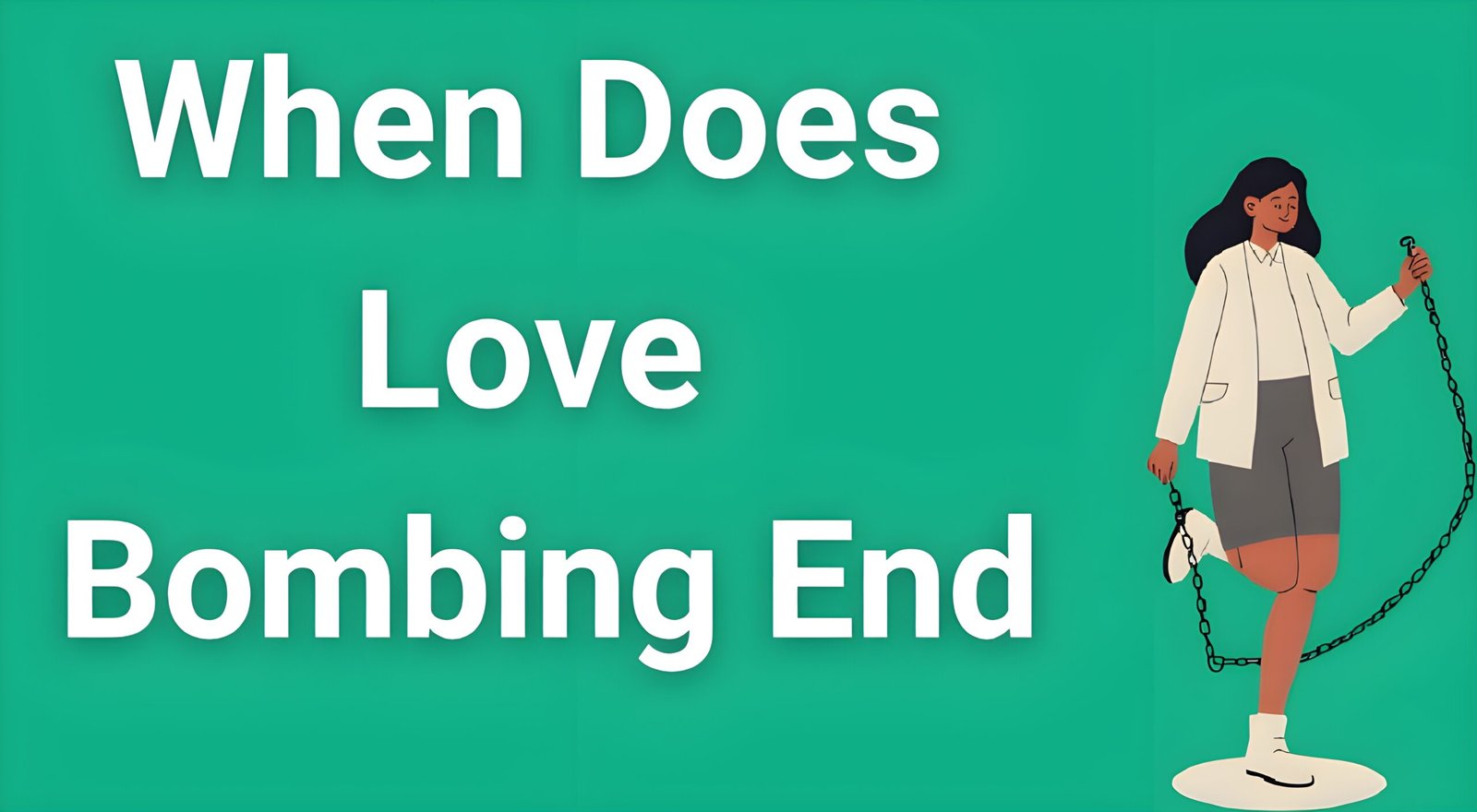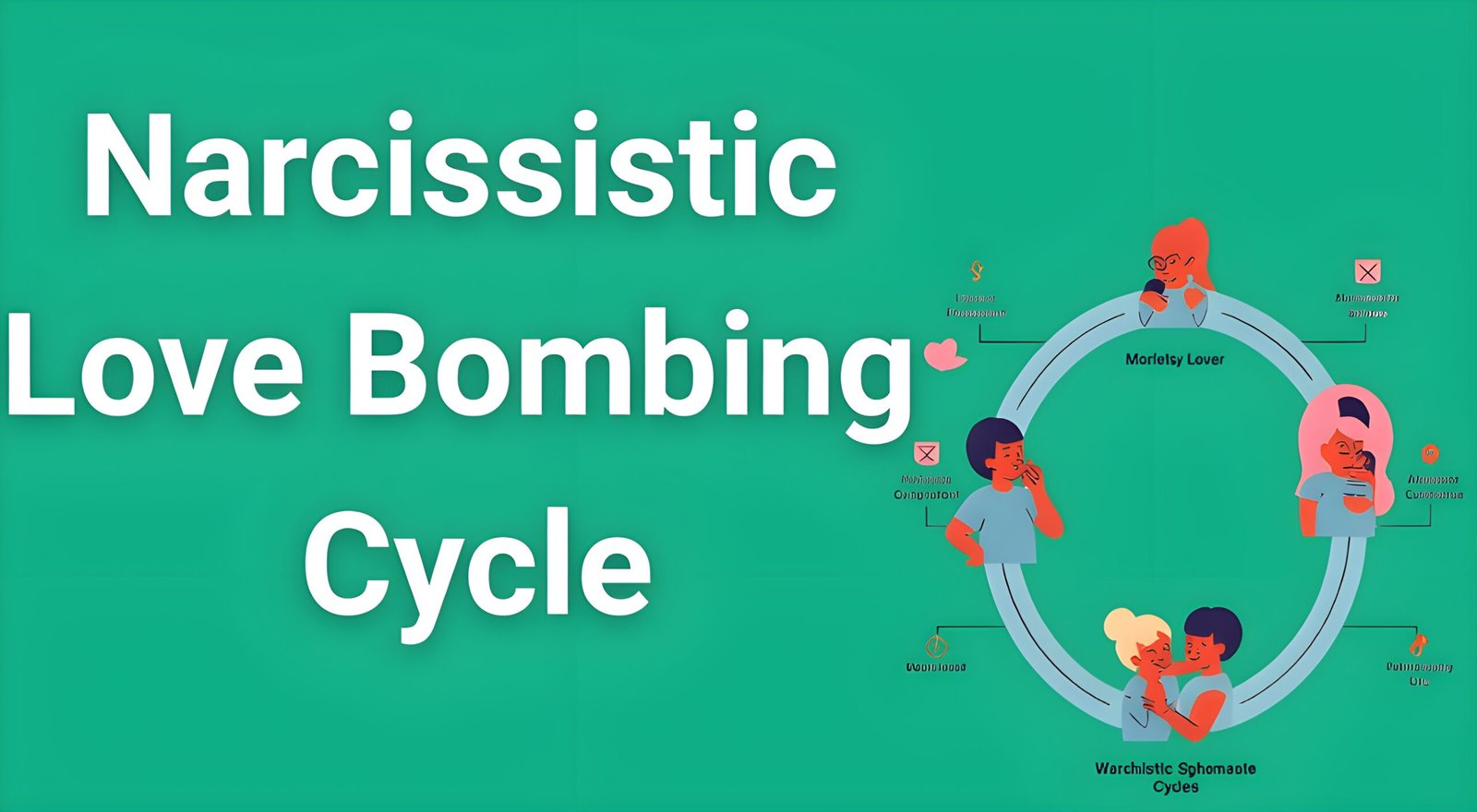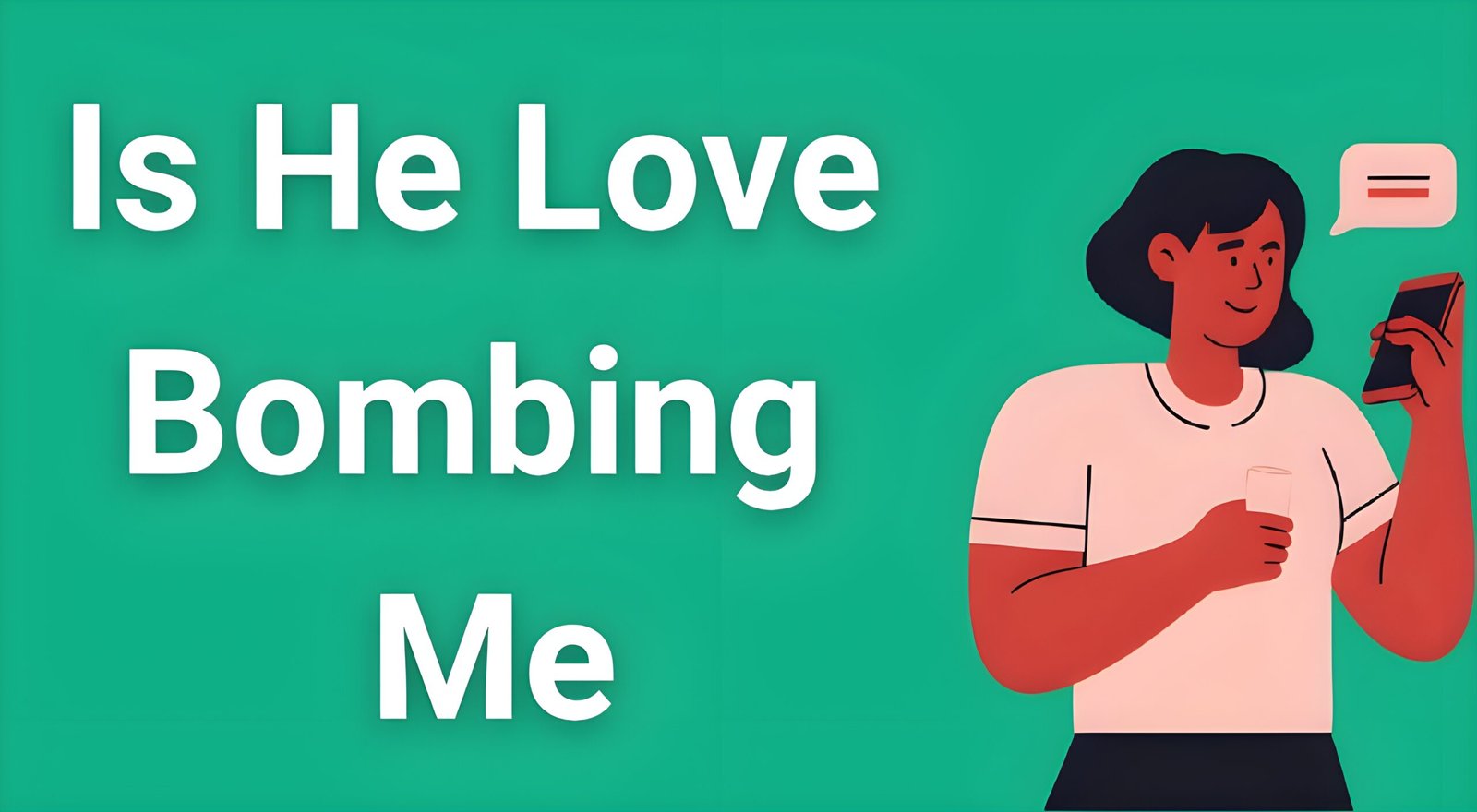You’re not imagining it. That overwhelming rush of attention, gifts, and promises wasn’t love—it was love bombing. And you’re probably wondering: how long does love bombing last? The answer might bring both relief and clarity to your situation.
- What Is Love Bombing? Understanding the Manipulation Tactic
- The Science Behind Love Bombing Duration: What Research Reveals
- The 4 Distinct Phases of Love Bombing: A Timeline Breakdown
- Factors That Influence How Long Love Bombing Lasts
- Red Flags: Recognizing Love Bombing Before It’s Too Late
- What Happens When Love Bombing Ends: The Painful Truth
- Breaking Free: Strategies for Recovery and Protection
- Why Professional Support Makes the Difference
- Protecting Yourself Moving Forward
- Frequently Asked Questions
- Finding Your Path to Freedom
- What Is Love Bombing? Understanding the Manipulation Tactic
- The Science Behind Love Bombing Duration: What Research Reveals
- The 4 Distinct Phases of Love Bombing: A Timeline Breakdown
- Factors That Influence How Long Love Bombing Lasts
- Red Flags: Recognizing Love Bombing Before It’s Too Late
- What Happens When Love Bombing Ends: The Painful Truth
- Breaking Free: Strategies for Recovery and Protection
- Why Professional Support Makes the Difference
- Protecting Yourself Moving Forward
- Frequently Asked Questions
- Finding Your Path to Freedom
If you’re questioning whether that intense whirlwind romance was real or manipulation, you’re asking the right questions. Love bombing has a predictable timeline, and understanding how long does love bombing last can help you recognize the pattern and protect yourself from further emotional harm.
Recent surveys of over 1,000 narcissistic abuse survivors reveal that love bombing typically lasts an average of three months, though the duration can vary significantly based on several factors we’ll explore in this comprehensive guide.
What Is Love Bombing? Understanding the Manipulation Tactic
Love bombing is an intense manipulation strategy where someone showers you with excessive attention, affection, and promises to quickly establish emotional control. This isn’t genuine love—it’s a calculated psychological tactic designed to make you emotionally dependent as rapidly as possible.
The term “love bombing” perfectly captures the overwhelming nature of this behavior. Like an actual bomb, it creates maximum impact in a short time, leaving you disoriented and vulnerable to further manipulation.
Narcissists and other manipulative individuals use love bombing because it works. The combination of excessive attention, future promises, and grand gestures triggers powerful bonding chemicals in your brain, creating an addictive-like attachment that becomes difficult to break.
The Science Behind Love Bombing Duration: What Research Reveals
Understanding how long does love bombing last requires looking at actual data from survivors’ experiences. Multiple surveys and studies have provided crucial insights into the typical timeline of this manipulative phase.
A comprehensive survey of 1,000 narcissistic abuse survivors found that the average love bombing duration is approximately three months. However, the range varies considerably:
- Less than one month: 15% of cases
- 1-3 months: 40% of cases
- 3-6 months: 25% of cases
- 6-12 months: 15% of cases
- More than 12 months: 5% of cases
Another study focusing specifically on gender differences found that narcissistic men tend to love bomb for an average of 5.5 months, while narcissistic women average 3.5 months. The intensity rating across all cases averaged 8 out of 10, indicating that most survivors experienced extremely intense love bombing.
These statistics reveal that while three months is the average, how long does love bombing last depends on various factors including the manipulator’s patience, your responses, and external circumstances.
The 4 Distinct Phases of Love Bombing: A Timeline Breakdown
Love bombing follows a predictable pattern that unfolds in distinct phases. Understanding these phases helps answer not just how long does love bombing last, but what you can expect throughout the process.
Phase 1: The Hook (Days 1-14)
The initial phase focuses on creating an immediate, intense connection. During this period, the love bomber will:
- Shower you with excessive compliments and attention
- Share intimate secrets unusually quickly
- Push for constant communication throughout the day
- Make grand romantic gestures that seem disproportionate to your relationship length
- Express strong feelings of love remarkably early
This phase typically lasts one to two weeks but can extend longer if you show resistance to their advances.
Phase 2: Deepening Dependence (Weeks 2-8)
Once initial interest is secured, the love bomber works to deepen your emotional investment. This phase includes:
- Future-faking with detailed plans for your life together
- Increasing demands for your time and attention
- Subtle isolation from friends and family
- Creating financial or practical dependencies
- Establishing themselves as your primary source of validation
This is often the longest phase of love bombing, where the manipulator solidifies their emotional control.
Phase 3: Testing Boundaries (Weeks 8-12)
As your attachment strengthens, the love bomber begins testing what they can get away with:
- Introducing subtle criticisms disguised as “helpful suggestions”
- Creating small conflicts to gauge your loyalty
- Pushing minor boundaries to see your reaction
- Beginning to withdraw affection as a control mechanism
- Starting the hot-and-cold behavior pattern
Phase 4: The Transition (Months 3-4)
The final phase marks the gradual or sudden shift from love bombing to the devaluation stage:
- Dramatic reduction in attention and affection
- Open criticism and fault-finding
- Gaslighting about previous promises and behaviors
- Emotional withdrawal and cruel treatment
- The beginning of the abuse cycle
Factors That Influence How Long Love Bombing Lasts
Several key factors determine exactly how long does love bombing last in your specific situation:
Your Response and Resistance Level
Love bombers continue the intense pursuit until they achieve their goal of emotional dependency. If you remain skeptical or maintain strong boundaries, they may extend the love bombing phase to break down your resistance. Conversely, if you quickly become emotionally invested, they may transition to the devaluation phase sooner.
The Manipulator’s Experience and Patience
Experienced narcissists often have more patience and may maintain love bombing longer to ensure complete emotional capture. They understand that rushing the process can cause targets to become suspicious and retreat.
External Circumstances
Distance, work schedules, and other life factors can extend love bombing duration. Long-distance relationships often experience prolonged love bombing phases because the manipulator has fewer opportunities for in-person manipulation.
Your Previous Trauma History
Individuals with previous trauma or abuse history may require longer love bombing periods to overcome their natural protective instincts. Manipulators often sense this vulnerability and adjust their timeline accordingly.
The Type of Relationship
Romantic relationships typically experience the most intense and lengthy love bombing. Family relationships and friendships may have shorter but repeated cycles of love bombing behavior.
Red Flags: Recognizing Love Bombing Before It’s Too Late
Understanding how long does love bombing last is crucial, but recognizing it early is even more important. Watch for these warning signs:
Intensity Mismatched to Timeline: Expressions of deep love or commitment within days or weeks of meeting someone indicate potential love bombing rather than genuine feelings.
Excessive Gift-Giving: Lavish, expensive gifts early in a relationship, especially when they create a sense of obligation, are classic love bombing tactics.
Constant Contact Demands: Expecting immediate responses to texts, wanting to spend every moment together, or becoming upset when you maintain other relationships signals problematic behavior.
Future-Faking: Detailed discussions about marriage, children, or life plans before you’ve had time to truly know each other represents manipulation rather than genuine planning.
Overwhelming Compliments: Excessive praise that feels over-the-top or focuses heavily on how you make them feel rather than appreciating you as an individual.
What Happens When Love Bombing Ends: The Painful Truth
The end of love bombing doesn’t bring relief—it typically marks the beginning of a more painful phase. Understanding this transition helps explain why recognizing how long does love bombing last is so crucial for protection.
The Devaluation Phase Begins
When love bombing ends, most narcissists immediately begin devaluing their target. This dramatic shift includes:
- Withdrawal of affection: The constant attention and praise suddenly stops
- Criticism and fault-finding: Nothing you do seems good enough anymore
- Gaslighting: They deny previous promises and make you question your memory
- Emotional abuse: Insults, silent treatment, and cruel behavior become common
- Control escalation: They tighten their grip through various manipulation tactics
The Trauma Bond Strengthens
Ironically, the end of love bombing often strengthens the emotional bond rather than breaking it. The sudden withdrawal of intense affection creates a trauma bond—a powerful psychological attachment that keeps victims hoping for a return to the love bombing phase.
This trauma bond explains why many people struggle to leave even after recognizing the manipulation. Your brain literally becomes addicted to the intermittent reinforcement of affection, making the relationship feel impossible to escape.
Breaking Free: Strategies for Recovery and Protection
If you’re currently experiencing love bombing or recovering from its aftermath, specific strategies can help you regain control and protect your emotional wellbeing.
Immediate Protection Strategies
Document the Pattern: Keep a journal of behaviors, promises, and timeline. This creates objective evidence when gaslighting makes you question your reality.
Maintain Outside Connections: Resist isolation attempts by staying connected with friends, family, and support systems.
Trust Your Instincts: If something feels too intense or overwhelming, trust that feeling rather than dismissing it.
Set and Maintain Boundaries: Establish clear limits on contact, gifts, and demands for your time.
Long-term Recovery Approaches
Recovery from love bombing requires addressing both the immediate manipulation and the underlying trauma bond that keeps you attached.
Understanding Your Experience: Many survivors find that getting a professional analysis of their situation provides crucial clarity and validation. A comprehensive assessment can help you understand exactly what manipulation tactics were used and why you responded as you did.
Breaking the Trauma Bond: The neurological addiction created by love bombing requires specific techniques to overcome. Structured recovery programs that address the brain chemistry changes can be more effective than willpower alone.
Rebuilding Your Identity: Love bombing often leaves you questioning your judgment and self-worth. Working with specialists who understand narcissistic abuse can help you reclaim your sense of self and develop stronger protective instincts.
Why Professional Support Makes the Difference
Understanding how long does love bombing last is just the beginning of your recovery journey. Many survivors find that professional support specifically designed for narcissistic abuse provides the fastest path to clarity and healing.
Specialized analysis can help you understand your unique situation, including:
- The specific manipulation tactics used against you
- Why certain approaches were effective
- How to protect yourself from future manipulation
- Personalized strategies for your recovery
For those dealing with ongoing trauma bonds, structured recovery programs offer science-based approaches to breaking the psychological addiction that keeps you attached to your abuser.
Protecting Yourself Moving Forward
Knowledge about love bombing duration empowers you to recognize and resist future manipulation attempts. Remember these key protective principles:
Healthy Relationships Develop Gradually: Genuine love and commitment build over time through consistent actions and shared experiences.
Actions Must Match Words: Pay attention to whether someone’s behavior aligns with their promises and declarations.
Maintain Your Independence: Healthy partners encourage your outside relationships and personal interests.
Trust Your Emotional Responses: If something feels overwhelming or uncomfortable, investigate those feelings rather than dismissing them.
Frequently Asked Questions
Can love bombing last for years?
While extremely rare, some cases of love bombing can extend beyond a year, particularly in long-distance relationships or when the manipulator has multiple sources of narcissistic supply. However, 95% of cases resolve within 12 months.
Is it possible to return to the love bombing phase?
Some narcissists engage in “hoovering”—attempting to draw you back with renewed love bombing. However, this is typically shorter and less intense than the original phase, designed specifically to regain control rather than establish it.
Can someone love bomb unintentionally?
While some people may naturally be very expressive or generous early in relationships, true love bombing involves manipulation and control. The key difference is whether the behavior serves your wellbeing or their agenda.
How can I tell if I’m being love bombed or if someone genuinely cares? G
enuine affection respects your boundaries, encourages your independence, and doesn’t pressure you for immediate commitment. Love bombing typically feels overwhelming and creates pressure to reciprocate quickly.
What should I do if I realize I’m being love bombed? I
f you’re currently experiencing love bombing, prioritize your safety and seek support from trusted friends, family, or professionals who understand narcissistic abuse. Document the behavior and consider getting a professional assessment of your situation.
Finding Your Path to Freedom
Understanding how long does love bombing last provides crucial insight into the manipulation tactics used against you. While the average duration is three months, recognizing the pattern—regardless of timeline—empowers you to protect yourself and begin healing.
Remember that your confusion and emotional attachment aren’t signs of weakness—they’re normal responses to calculated psychological manipulation. The intense bonding created during love bombing is designed to be difficult to break, but with the right support and strategies, complete recovery is absolutely possible.
Your experience with love bombing doesn’t define you, but understanding it can transform your ability to recognize healthy love and protect yourself from future manipulation. The journey to clarity and freedom begins with acknowledging what happened and taking the first step toward professional support designed specifically for survivors of narcissistic abuse.
Recovery isn’t just possible—it’s inevitable when you have the right tools, support, and understanding of what you’ve experienced. Your freedom and happiness are worth fighting for, and you deserve relationships built on genuine love rather than manipulation and control.If you’re questioning whether that intense whirlwind romance was real or manipulation, you’re asking the right questions. Love bombing has a predictable timeline, and understanding how long does love bombing last can help you recognize the pattern and protect yourself from further emotional harm.
Recent surveys of over 1,000 narcissistic abuse survivors reveal that love bombing typically lasts an average of three months, though the duration can vary significantly based on several factors we’ll explore in this comprehensive guide.
What Is Love Bombing? Understanding the Manipulation Tactic
Love bombing is an intense manipulation strategy where someone showers you with excessive attention, affection, and promises to quickly establish emotional control. This isn’t genuine love—it’s a calculated psychological tactic designed to make you emotionally dependent as rapidly as possible.
The term “love bombing” perfectly captures the overwhelming nature of this behavior. Like an actual bomb, it creates maximum impact in a short time, leaving you disoriented and vulnerable to further manipulation.
Narcissists and other manipulative individuals use love bombing because it works. The combination of excessive attention, future promises, and grand gestures triggers powerful bonding chemicals in your brain, creating an addictive-like attachment that becomes difficult to break.
The Science Behind Love Bombing Duration: What Research Reveals
Understanding how long does love bombing last requires looking at actual data from survivors’ experiences. Multiple surveys and studies have provided crucial insights into the typical timeline of this manipulative phase.
A comprehensive survey of 1,000 narcissistic abuse survivors found that the average love bombing duration is approximately three months. However, the range varies considerably:
- Less than one month: 15% of cases
- 1-3 months: 40% of cases
- 3-6 months: 25% of cases
- 6-12 months: 15% of cases
- More than 12 months: 5% of cases
Another study focusing specifically on gender differences found that narcissistic men tend to love bomb for an average of 5.5 months, while narcissistic women average 3.5 months. The intensity rating across all cases averaged 8 out of 10, indicating that most survivors experienced extremely intense love bombing.
These statistics reveal that while three months is the average, how long does love bombing last depends on various factors including the manipulator’s patience, your responses, and external circumstances.
The 4 Distinct Phases of Love Bombing: A Timeline Breakdown
Love bombing follows a predictable pattern that unfolds in distinct phases. Understanding these phases helps answer not just how long does love bombing last, but what you can expect throughout the process.
Phase 1: The Hook (Days 1-14)
The initial phase focuses on creating an immediate, intense connection. During this period, the love bomber will:
- Shower you with excessive compliments and attention
- Share intimate secrets unusually quickly
- Push for constant communication throughout the day
- Make grand romantic gestures that seem disproportionate to your relationship length
- Express strong feelings of love remarkably early
This phase typically lasts one to two weeks but can extend longer if you show resistance to their advances.
Phase 2: Deepening Dependence (Weeks 2-8)
Once initial interest is secured, the love bomber works to deepen your emotional investment. This phase includes:
- Future-faking with detailed plans for your life together
- Increasing demands for your time and attention
- Subtle isolation from friends and family
- Creating financial or practical dependencies
- Establishing themselves as your primary source of validation
This is often the longest phase of love bombing, where the manipulator solidifies their emotional control.
Phase 3: Testing Boundaries (Weeks 8-12)
As your attachment strengthens, the love bomber begins testing what they can get away with:
- Introducing subtle criticisms disguised as “helpful suggestions”
- Creating small conflicts to gauge your loyalty
- Pushing minor boundaries to see your reaction
- Beginning to withdraw affection as a control mechanism
- Starting the hot-and-cold behavior pattern
Phase 4: The Transition (Months 3-4)
The final phase marks the gradual or sudden shift from love bombing to the devaluation stage:
- Dramatic reduction in attention and affection
- Open criticism and fault-finding
- Gaslighting about previous promises and behaviors
- Emotional withdrawal and cruel treatment
- The beginning of the abuse cycle
Factors That Influence How Long Love Bombing Lasts
Several key factors determine exactly how long does love bombing last in your specific situation:
Your Response and Resistance Level
Love bombers continue the intense pursuit until they achieve their goal of emotional dependency. If you remain skeptical or maintain strong boundaries, they may extend the love bombing phase to break down your resistance. Conversely, if you quickly become emotionally invested, they may transition to the devaluation phase sooner.
The Manipulator’s Experience and Patience
Experienced narcissists often have more patience and may maintain love bombing longer to ensure complete emotional capture. They understand that rushing the process can cause targets to become suspicious and retreat.
External Circumstances
Distance, work schedules, and other life factors can extend love bombing duration. Long-distance relationships often experience prolonged love bombing phases because the manipulator has fewer opportunities for in-person manipulation.
Your Previous Trauma History
Individuals with previous trauma or abuse history may require longer love bombing periods to overcome their natural protective instincts. Manipulators often sense this vulnerability and adjust their timeline accordingly.
The Type of Relationship
Romantic relationships typically experience the most intense and lengthy love bombing. Family relationships and friendships may have shorter but repeated cycles of love bombing behavior.
Red Flags: Recognizing Love Bombing Before It’s Too Late
Understanding how long does love bombing last is crucial, but recognizing it early is even more important. Watch for these warning signs:
Intensity Mismatched to Timeline: Expressions of deep love or commitment within days or weeks of meeting someone indicate potential love bombing rather than genuine feelings.
Excessive Gift-Giving: Lavish, expensive gifts early in a relationship, especially when they create a sense of obligation, are classic love bombing tactics.
Constant Contact Demands: Expecting immediate responses to texts, wanting to spend every moment together, or becoming upset when you maintain other relationships signals problematic behavior.
Future-Faking: Detailed discussions about marriage, children, or life plans before you’ve had time to truly know each other represents manipulation rather than genuine planning.
Overwhelming Compliments: Excessive praise that feels over-the-top or focuses heavily on how you make them feel rather than appreciating you as an individual.
What Happens When Love Bombing Ends: The Painful Truth
The end of love bombing doesn’t bring relief—it typically marks the beginning of a more painful phase. Understanding this transition helps explain why recognizing how long does love bombing last is so crucial for protection.
The Devaluation Phase Begins
When love bombing ends, most narcissists immediately begin devaluing their target. This dramatic shift includes:
- Withdrawal of affection: The constant attention and praise suddenly stops
- Criticism and fault-finding: Nothing you do seems good enough anymore
- Gaslighting: They deny previous promises and make you question your memory
- Emotional abuse: Insults, silent treatment, and cruel behavior become common
- Control escalation: They tighten their grip through various manipulation tactics
The Trauma Bond Strengthens
Ironically, the end of love bombing often strengthens the emotional bond rather than breaking it. The sudden withdrawal of intense affection creates a trauma bond—a powerful psychological attachment that keeps victims hoping for a return to the love bombing phase.
This trauma bond explains why many people struggle to leave even after recognizing the manipulation. Your brain literally becomes addicted to the intermittent reinforcement of affection, making the relationship feel impossible to escape.
Breaking Free: Strategies for Recovery and Protection
If you’re currently experiencing love bombing or recovering from its aftermath, specific strategies can help you regain control and protect your emotional wellbeing.
Immediate Protection Strategies
Document the Pattern: Keep a journal of behaviors, promises, and timeline. This creates objective evidence when gaslighting makes you question your reality.
Maintain Outside Connections: Resist isolation attempts by staying connected with friends, family, and support systems.
Trust Your Instincts: If something feels too intense or overwhelming, trust that feeling rather than dismissing it.
Set and Maintain Boundaries: Establish clear limits on contact, gifts, and demands for your time.
Long-term Recovery Approaches
Recovery from love bombing requires addressing both the immediate manipulation and the underlying trauma bond that keeps you attached.
Understanding Your Experience: Many survivors find that getting a professional analysis of their situation provides crucial clarity and validation. A comprehensive assessment can help you understand exactly what manipulation tactics were used and why you responded as you did.
Breaking the Trauma Bond: The neurological addiction created by love bombing requires specific techniques to overcome. Structured recovery programs that address the brain chemistry changes can be more effective than willpower alone.
Rebuilding Your Identity: Love bombing often leaves you questioning your judgment and self-worth. Working with specialists who understand narcissistic abuse can help you reclaim your sense of self and develop stronger protective instincts.
Why Professional Support Makes the Difference
Understanding how long does love bombing last is just the beginning of your recovery journey. Many survivors find that professional support specifically designed for narcissistic abuse provides the fastest path to clarity and healing.
Specialized analysis can help you understand your unique situation, including:
- The specific manipulation tactics used against you
- Why certain approaches were effective
- How to protect yourself from future manipulation
- Personalized strategies for your recovery
For those dealing with ongoing trauma bonds, structured recovery programs offer science-based approaches to breaking the psychological addiction that keeps you attached to your abuser.
Protecting Yourself Moving Forward
Knowledge about love bombing duration empowers you to recognize and resist future manipulation attempts. Remember these key protective principles:
Healthy Relationships Develop Gradually: Genuine love and commitment build over time through consistent actions and shared experiences.
Actions Must Match Words: Pay attention to whether someone’s behavior aligns with their promises and declarations.
Maintain Your Independence: Healthy partners encourage your outside relationships and personal interests.
Trust Your Emotional Responses: If something feels overwhelming or uncomfortable, investigate those feelings rather than dismissing them.
Frequently Asked Questions
Can love bombing last for years?
While extremely rare, some cases of love bombing can extend beyond a year, particularly in long-distance relationships or when the manipulator has multiple sources of narcissistic supply. However, 95% of cases resolve within 12 months.
Is it possible to return to the love bombing phase?
Some narcissists engage in “hoovering”—attempting to draw you back with renewed love bombing. However, this is typically shorter and less intense than the original phase, designed specifically to regain control rather than establish it.
Can someone love bomb unintentionally?
While some people may naturally be very expressive or generous early in relationships, true love bombing involves manipulation and control. The key difference is whether the behavior serves your wellbeing or their agenda.
How can I tell if I’m being love bombed or if someone genuinely cares?
Genuine affection respects your boundaries, encourages your independence, and doesn’t pressure you for immediate commitment. Love bombing typically feels overwhelming and creates pressure to reciprocate quickly.
What should I do if I realize I’m being love bombed?
If you’re currently experiencing love bombing, prioritize your safety and seek support from trusted friends, family, or professionals who understand narcissistic abuse. Document the behavior and consider getting a professional assessment of your situation.
Finding Your Path to Freedom
Understanding how long does love bombing last provides crucial insight into the manipulation tactics used against you. While the average duration is three months, recognizing the pattern—regardless of timeline—empowers you to protect yourself and begin healing.
Remember that your confusion and emotional attachment aren’t signs of weakness—they’re normal responses to calculated psychological manipulation. The intense bonding created during love bombing is designed to be difficult to break, but with the right support and strategies, complete recovery is absolutely possible.
Your experience with love bombing doesn’t define you, but understanding it can transform your ability to recognize healthy love and protect yourself from future manipulation. The journey to clarity and freedom begins with acknowledging what happened and taking the first step toward professional support designed specifically for survivors of narcissistic abuse.
Recovery isn’t just possible—it’s inevitable when you have the right tools, support, and understanding of what you’ve experienced. Your freedom and happiness are worth fighting for, and you deserve relationships built on genuine love rather than manipulation and control.

